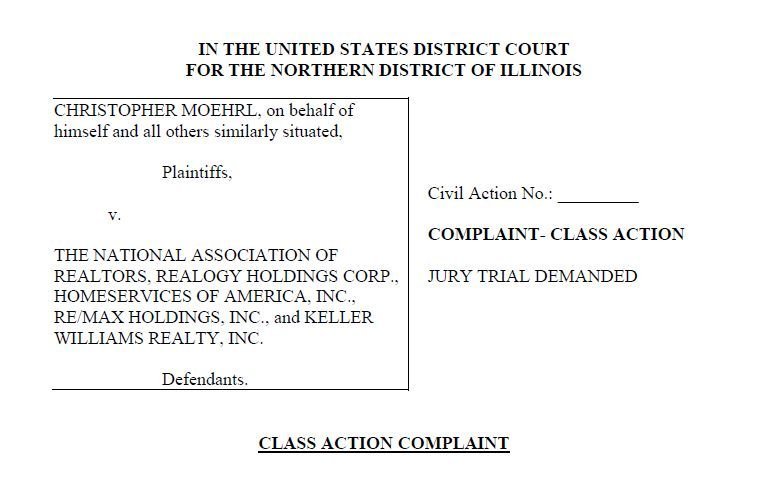Archer-Daniels-Midland Class Action Lawsuit: Your Legal Roadmap
Archer-Daniels-Midland Class Action Lawsuit: Your Legal Roadmap
Blog Article
Demystifying Class Activity Lawsuits: A Closer Check Out Lawful Process
Course activity legal actions can be intimidating and intricate, frequently shrouded in a veil of secret for those unfamiliar with the lawful process entailed. Getting a deeper understanding of these claims is critical, as they serve as an effective tool for people to seek justice and hold companies accountable. In this conversation, we will certainly debunk course action legal actions, taking a closer check out the various elements of the lawful procedures. From recognizing the requirements for course action eligibility to the duty of class agents, and from the procedure of class qualification to the resolution of these lawsuits, we will certainly unravel the ins and outs and clarified the internal workings of this legal device. So, let's dive right into the world of course action claims and find the intricacies that exist beneath the surface area.
Comprehending Class Activity Claims
Understanding Class Activity Claim requires a thorough evaluation of the lawful proceedings associated with collective litigation. Course action claims are a sort of legal action where a group of people with comparable cases or complaints collaborate to initiate a legal action versus a typical defendant. This form of lawsuits enables individuals with limited sources to collectively seek justice, as it combines the toughness of several individual claims right into a solitary lawsuit.
The procedure begins with the identification of a lead complainant or class representative that files the initial issue on part of the whole class. The court then identifies whether the case meets the needs for course accreditation, that include commonality, numerosity, typicality, and adequacy of representation. If certified, the court informs possible course participants, providing them an opportunity to opt-out if they wish to seek their insurance claims separately.
Once the course is licensed, the litigation proceeds via different stages, consisting of exploration, motion technique, and, if necessary, test. The outcome of the lawsuit can cause a settlement or a judgment, which is binding on all class participants unless they select to opt-out. Course activity suits can encompass a vast variety of lawful concerns, such as consumer security, safeties fraud, employment discrimination, and environmental injury.
Understanding the subtleties of class activity suits is essential for both accuseds and complainants entailed in collective lawsuits. It needs a detailed understanding of the lawful demands for certification, the legal rights and obligations of class participants, and the potential benefits and risks linked with going after or safeguarding against course action insurance claims.
Identifying Class Activity Eligibility
To establish whether a lawsuit certifies as a course action claim, details criteria need to be met. These criteria are developed to make sure that the case can appropriately represent the passions of a big team of people that have actually suffered comparable damage or have actually been impacted by the exact same concern. The essential factor in recognizing course activity qualification is the existence of an usual concern or issue that affects all prospective course members.
Firstly, a course action lawsuit needs numerosity, which indicates there have to be a significant variety of potential class participants included. This guarantees that a course activity is a reliable way to solve the claims of a large group of people, instead of having everyone submit an individual lawsuit.
Secondly, there need to be commonness amongst the insurance claims of the potential class members. This means that there should be an usual question of law or fact that is main to the instance. If each prospective course participant's insurance claim is unassociated and unique to the others, a course action may not be appropriate.

The Function of Course Rep
Class reps play an essential duty in official statement course action lawsuits by standing for the rate of interests of the entire class. These people are picked from within the class to function as the public face of the lawsuit and are in charge of choosing on behalf of all class participants. The role of course representatives involves different obligations and responsibilities throughout the legal procedures.
One of the primary duties of course agents is to supply info and aid to their fellow class participants. They function as a factor of call and communication between the class participants and the attorneys representing them. This includes keeping the class members educated around important updates, answering their inquiries, and addressing any problems they may have.
Course agents additionally have the task to actively take part in the lawsuits process (Future FinTech class action lawsuit). This includes functioning carefully with the lawyers to develop lawful strategies, collecting proof, and offering testament if essential. They have to be proactively involved in all aspects of the case to make certain that the best interests of the whole course are stood for
Additionally, course representatives are accountable for accepting negotiations or other resolutions reached in the Full Report claim. They should carefully assess the terms of the negotiation and choose that remains in the most effective passion of the entire course. This decision-making process needs cautious factor to consider and consultation with the class participants.
The Process of Course Accreditation
The procedure of accrediting a class in a class action legal action includes a comprehensive analysis of particular criteria to identify if the instance satisfies the required demands for class qualification. Course qualification is a vital action in the lawsuits process as it figures out whether a claim can continue as a class action, allowing a huge group of people with comparable claims to be stood for collectively by one or a few individuals.
To acquire class certification, the plaintiff should show that the recommended class satisfies specific requirements. These prerequisites generally include numerosity, commonness, typicality, and adequacy of depiction. Numerosity calls for that the class is so huge that joinder of all members is unwise. Commonness necessitates that there are concerns of law or reality typical to the class participants. Typicality requires that the cases or defenses of the course agents are typical of those of the course. Competence of depiction makes sure that the course representatives will rather and appropriately safeguard the passions of the course.
If the recommended course fulfills the essential requirements,The court will certainly scrutinize these criteria and the plaintiff's proof to figure out. The court may also take into consideration Full Report various other elements, such as whether a class activity is the exceptional method to fix the dispute and whether the class is completely natural.

As soon as the court grants class qualification, the legal action can proceed as a class activity, enabling the complainants to jointly seek relief and potentially receive a judgment or settlement that benefits the entire class.
Handling Course Activity Suits
As soon as class accreditation has been given, the following step in fixing a class action claim is to browse the process of litigation or settlement negotiations. Lawsuits refers to the lawful process in court, where the complainant's lawyer offers evidence and arguments to support their cases, and the defendant's lawyer counters with their own evidence and disagreements. This process can include numerous phases, such as pretrial activities, discovery, and trial.
On the other hand, settlement negotiations include discussions between the parties to reach a mutually acceptable resolution without going to trial. Assertio class action lawsuit. Negotiation provides might be made at any type of stage of the lawsuits process, and if both parties concur, a settlement contract is reached. This contract usually lays out the terms and problems of the settlement, consisting of any type of monetary payment, injunctive relief, or various other remedies. When the settlement is completed, it is presented to the court for authorization.
Final Thought
Finally, course action lawsuits play an essential role in giving justice and settlement to huge groups of people that have been damaged by the same entity. By assigning and certifying a class course agents, the legal process comes to be extra reliable and obtainable for the plaintiffs. Handling these claims can be a facility and lengthy process, however it is important in holding firms accountable for their actions and making sure reasonable end results for all influenced celebrations.
From comprehending the standards for class action eligibility to the role of class reps, and from the procedure of course qualification to the resolution of these lawsuits, we will decipher the intricacies and lost light on the inner operations of this legal device. The vital variable in recognizing class activity eligibility is the presence of a typical inquiry or concern that influences all prospective class members.
If each possible course participant's case is unique and unassociated to the others, a course action may not be proper.
Class representatives play a crucial function in class action suits by representing the rate of interests of the entire class.As soon as course certification has actually been granted, the following step in dealing with a class action legal action is to navigate the process of litigation or negotiation negotiations.
Report this page